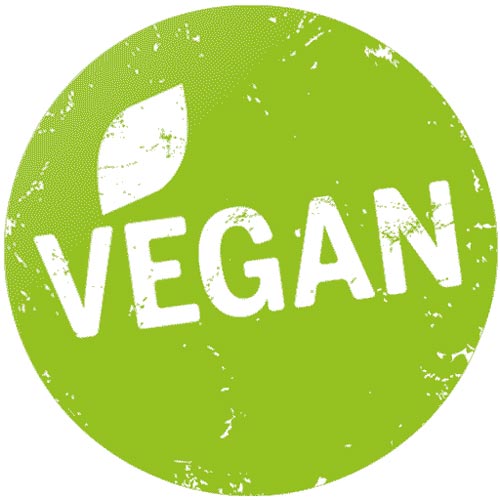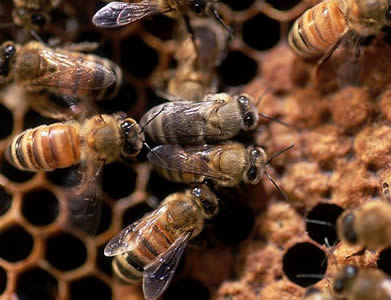What is a vegan, anyway?
Well, the official definition is pretty straight forward, but there are what I would describe as a couple of modern-day variations – shaped by different motivations – that have emerged.
But let's start with the original definition and then move on to some discussion:
A vegan does not eat meat, dairy products, eggs, honey, or any product that comes from an animal, be it flesh or secretions (bodily fluid). Vegans do not wear animal-derived materials either, like leather, fur, silk or wool. Vegans do not use products that are made with animal ingredients, or products that are filtered using animal parts, which include some white sugars, wines and beers.
So that is the definition of a “strict vegan”, one might say. Most would defend this as the only definition, though, because there is no generally acceptable deviation from this; as in there are no accepted sub-genres of veganism. Most would say you're vegan or you're not.
There is vegetarianism, of course, of which there are a few variations (I explore those here).
Who Invented the Word Vegan?
The person who first coined the term was a man named Donald Watson; founder of the Vegan Society. He did so in 1944, so as to draw a clear distinction between vegetarians who still ate dairy and vegans who didn't.
Quite simply, he took the first and last letters of the word vegetarian and created the word “vegan”.

The Modern Day Evolution of Veganism
Vegan for Health Reasons (a Plant-Based Diet)
Vegans were once seen as a fringe group, and veganism an extreme diet strongly associated with animal rights.
Using their lobbying power over government, and multi-million dollar marketing campaigns that infiltrate the food pyramid, nutritional guidelines, and the meals served in schools, the meat and dairy industries have done a fine job over the years of making kids – who ultimately become adults and teach their kids the same – believe that meat and dairy is essential for health, and that without it you will get weak and sick – like a vegan!
Fast-forward to today and the picture is very different: science now knows that a plant-based diet is conducive to optimal health, and is capable of preventing, and in many cases reversing, some of the biggest killers today – such as heart disease and diabetes (reversing CAD research paper).
Three-thousand Americans have heart attacks every day, of which 2.4 percent are fatal. Those who survive often go on to have another.
Every day, nearly 2,600 Americans die of some type of cardiovascular disease, including heart attacks, strokes, and kidney disease caused by blockages in the arteries to the kidney. This means one death every 34 seconds.
The link between a high meat diet and cardiovascular disease is undeniable, as is the link between processed meat (bacon, hot dogs, etc) and cancer; now considered a class 1 carcinogen.
We also now know that you don't need milk for healthy bones, as studies show that those with higher milk consumption are more likely to get bone fractures and osteoporosis that those who don't.
In fact…
a 12-year Harvard study of 78,000 women, those who drank milk three times a day actually broke more bones than women who rarely drank milk (1).
Similarly, a 1994 study of elderly men and women in Sydney, Australia, showed that higher dairy product consumption was associated with increased fracture risk (2).
Those with the highest dairy product consumption had approximately double the risk of hip fracture compared to those with the lowest consumption (3).
✓ Read ‘The China Study' if you haven't done so already
Because of such health benefits, veganism is growing massively in popularity.
As more doctors, health-related charities, heart disease/cancer/ diabetes organizations promote the benefits of a plant-based diet, and documentaries like What The Health open people's eyes to the lies we're sold through marketing, people are choosing to eat a vegan (plant-based) diet.
But! Instead of using the word “vegan”, the term “plant-based diet” is used.
Why?
Well, veganism is widely associated with animal rights activism, and a large number of people going vegan today are not overly concerned with animal rights.
They might still wear leather, wool or silk, or think nothing of eating a bit of honey or deviating with the occasional slice of cheese.
Many “new vegans” are amateur or professional athletes, whose primary concern is losing unwanted fat, improving performance and recovery time, and reducing inflammation and chance of injury.
They are primarily concerned with their health, and do not want to be associated with the animal rights movement or any connotation arising from that.
But Who Would Be Vegan If It Wasn't Healthy?
Good point.
Let's get real here. If being a vegan was a threat to my life: if I couldn't get the nutrients required to live a long, active, healthy life, and I was shortening my life and causing my health to deteriorate by not eating meat, would I stay vegan just to make a stand against animal cruelty?
Of course not.
I would still take a stance against wearing leather, silk, fur, etc., because that would be wholly unnecessary, but if Mother Nature designed life so that I had to eat meat to prevent illness, then clearly I was designed to eat meat.
But she didn't. In fact she designed it in the opposite way – according to the science, that is.
So, in this respect, I don't think the health angle and animal rights angle are mutually exclusively: You can't have one without the other.
By design, being vegan is naturally beneficial all round: your health benefits, the environment benefits and so do the animals. We all thrive.
The Unhealthy Vegan – Animal Rights Over Health
A vegan diet should be full of a wide variety of delicious, nutritious foods, including vegetables, grains, nuts, legumes, seeds, and fruits.
When you eat a good vegan diet you are super healthy: you maintain a good weight, drop excess fat, unclog your arteries, reduce inflammation in the body; you are able to exercise more and recover faster from illness.
But not all vegans are healthy. And some don't care. Consider that many processed, sugary foods are naturally vegan too: soda drinks, crisps/chips, many biscuits, sweets and desserts.
Some vegans live off “vegan junk food”. I have met many vegan animal activists who are overweight; full of trans fats and processed sugars. They make it their lifetime's work to fight for the welfare of animals but neglect their own health.
I'm not here to be the vegan food police. It's up to them. But it needn't be this way.
✓ Read ‘How Not To Die' & Get Super Healthy
Vegan for the Planet – “Vegcology”
You heard that term here first. I invented it!
And a person into vegcology is a “vecol”. Enough already!
In addition to the health benefits, going vegan will contribute to slowing down the current and very rapid destruction of the planet; that's the very thing supporting our existence, in case you had forgotten – it feels like most people have.
Just to make the point, here's some alarming facts:
Animal agriculture is responsible for 18 percent of greenhouse gas emissions, more than the combined exhaust from all transportation – (Source)
Livestock and their byproducts account for at least 32,000 million tons of carbon dioxide (CO2) per year, or 51% of all worldwide greenhouse gas emissions. – (Source)
Agriculture is responsible for 80-90% of US water consumption.- (Source)
Animal agriculture is the leading cause of species extinction, ocean dead zones, water pollution, and habitat destruction. – (Source)
Animal agriculture is responsible for up to 91% of Amazon Rainforest destruction. – (Source)
The fact is, animal agriculture is destroying the planet.
Documentaries like Cowspiracy, which pulls back the curtain on the devastation caused by the animal agriculture industry, have motivated environmentally-concerned people to turn vegan.
People want to leave their kids a world with clean oceans and clean air, not a world where asthma is the norm and swimming in the sea is out of bounds through fear of being poisoned.
So potentially we have another type of vegan here: one who isn't an animal rights activist (though probably cares for the welfare of animals) but is very concerned about the impact of animal agriculture on the planet.
In reality though, a large percentage of those who fall into this category are likely to be reducetarians. Reduce-a-whats?
What Is a Reducetarian?
Some might say the reducetarian movement is the bastard child of veganism. A horrible term, but an accurate metaphor.
A “reducetarian” diet is basically a moderate, middle-road approach, whereby a person reduces amount of meat, eggs and dairy they consume in a bid to improve their health, protect the environment and reduce cruelty to animals.
The thought process behind reducetarianism is that if everyone reduces their footprint by being one or two thirds “plant-based, the planet and animal welfare will see an overall improvement.
This lifestyle has grown in popularity to the point where there is even a Reducetarian Foundation. The science suggests it is tokenistic at best.
In Summary
A vegan is someone who does not eat, wear or exploit animals in any way.
Generally, vegans are concerned with fighting the exploitation of animals, but bear in mind that this doesn't make them healthy. There are good and bad versions of a vegan diet.
Someone who eats a plant-based diet for health reasons, be that to combat illness or improve athletic performance, is likely to be healthy, but may not identify as vegan because they aren't interested in animal rights. On the other hand, they may well identify as being a vegan.
The same goes for a “vecol”, a term I invented for someone who is primarily a die-hard environmentalist against the destruction of the planet caused by animal agriculture.
At the same time, the vecol isn't overly fussed about whether or not animals die for food, but is concerned for their welfare. Most vecols would probably fall into the category of reducetarian.
So why is defining veganism getting a tad complex and straying from its strict pathway?
Quite simply because people are pulling it in different directions.
Veganism is no longer a fringe group, and is no longer seen as an extreme way to live. Because of its rise in popularity and multiple benefits across the three main categories – health, animal rights, ecology – people are “going vegan” for different reasons.
Sometimes it is for two of the main three categories, or one or all three. But what you will find that is that the issues people care about most differs across the board.
For the record, though: Veganism is not really a diet at all. It is a way of living that reduces harm and suffering and simultaneously promotes health and compassion for all sentient beings.
There is now a clear argument that this is the most positive way for our species to progress: for our health, and that of the planet and its animal inhabitants.
References:
1. U.S. Department of Health and Human Services. Bone Health and Osteoporosis: A Report of the Surgeon General. Rockville, MD: U.S. Department of Health and Human Services, Office of the Surgeon General; 2004.
2. Feskanich D, Willett WC, Colditz GA. Calcium, vitamin D, milk consumption, and hip fractures: a prospective study among postmenopausal women. Am J Clin Nutr. 2003;77:504-511.
3. Committee to Review Dietary Reference Intakes for Vitamin D and Calcium, Food and Nutrition Board, Institute of Medicine. Dietary Reference Intakes for Calcium and Vitamin D. Washington, DC: National Academy Press, 2010.

![Vegan Vs. Vegetarian – What's the Difference [And is There Beef?] vegan vs vegetarian](https://www.theplantway.com/wp-content/uploads/2015/01/vegan-vs-vegetarian.jpg)


Leave a Reply